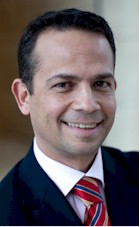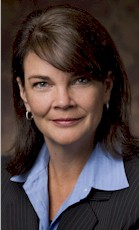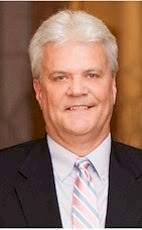
The latest technology has afforded meeting planners greater efficiency when researching venues, making a booking, and when communicating with attendees. Technology has also enhanced the actual meeting experience for both attendees on property as well as off site with live feeds and video streaming, and real time social media feedback. Meeting attendees take notes on tablets and take photographs and videos of presentations with their smart phones, almost eliminating the need for paper and pencils! To stay competitive and current with the changing trends, hoteliers are adding technological enhancements to the entire booking and meeting experience, but does the job end there for hoteliers? This article will address some “old tricks” in a new environment to help hoteliers get a greater share of the group business and ensure satisfaction for repeat business. READ MORE



 Cautious optimism seems to be the prevailing sentiment today for those professionals involved in hotel group sales. Hotel rooms, conference centers and other meeting venues that were sold to groups in the recent past at steeply discounted prices are finally off the books, and managers are re-examining their pricing structures and making positive upward adjustments, without fear of scaring off potential customers. They are also instituting more flexible pricing policies. In the past, a hotel might set its room and facility prices for an entire upcoming year; now their group business rates are being adjusted according to foreseeable demand at the hotel level. Given these circumstances, some hotels are making investments in the group business sector, primarily driven by new technologies. At some hotels, guests are able to make service requests, check email/weather, use the Business Center, print documents, and receive customized messages from meeting planners ? all through a virtual concierge service on guest room TVs. Other hotels are making technology ubiquitous by providing laptops in restaurants, bars and lobbies for complimentary customer use. Perhaps even more important, some hotels are hiring on-site IT teams to ensure that their conferences function smoothly. The need for a knowledgeable IT team that really understands technology and can cater to group business is substantial. The September Hotel Business Review will examine issues relevant to group business and will report on what some hotels are doing to promote and retain this sector of their operations.
Cautious optimism seems to be the prevailing sentiment today for those professionals involved in hotel group sales. Hotel rooms, conference centers and other meeting venues that were sold to groups in the recent past at steeply discounted prices are finally off the books, and managers are re-examining their pricing structures and making positive upward adjustments, without fear of scaring off potential customers. They are also instituting more flexible pricing policies. In the past, a hotel might set its room and facility prices for an entire upcoming year; now their group business rates are being adjusted according to foreseeable demand at the hotel level. Given these circumstances, some hotels are making investments in the group business sector, primarily driven by new technologies. At some hotels, guests are able to make service requests, check email/weather, use the Business Center, print documents, and receive customized messages from meeting planners ? all through a virtual concierge service on guest room TVs. Other hotels are making technology ubiquitous by providing laptops in restaurants, bars and lobbies for complimentary customer use. Perhaps even more important, some hotels are hiring on-site IT teams to ensure that their conferences function smoothly. The need for a knowledgeable IT team that really understands technology and can cater to group business is substantial. The September Hotel Business Review will examine issues relevant to group business and will report on what some hotels are doing to promote and retain this sector of their operations.










































